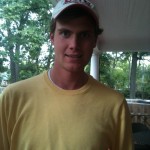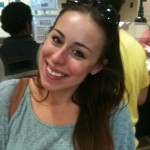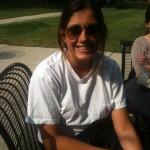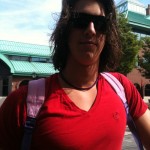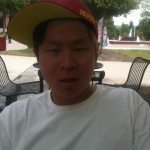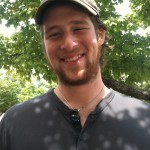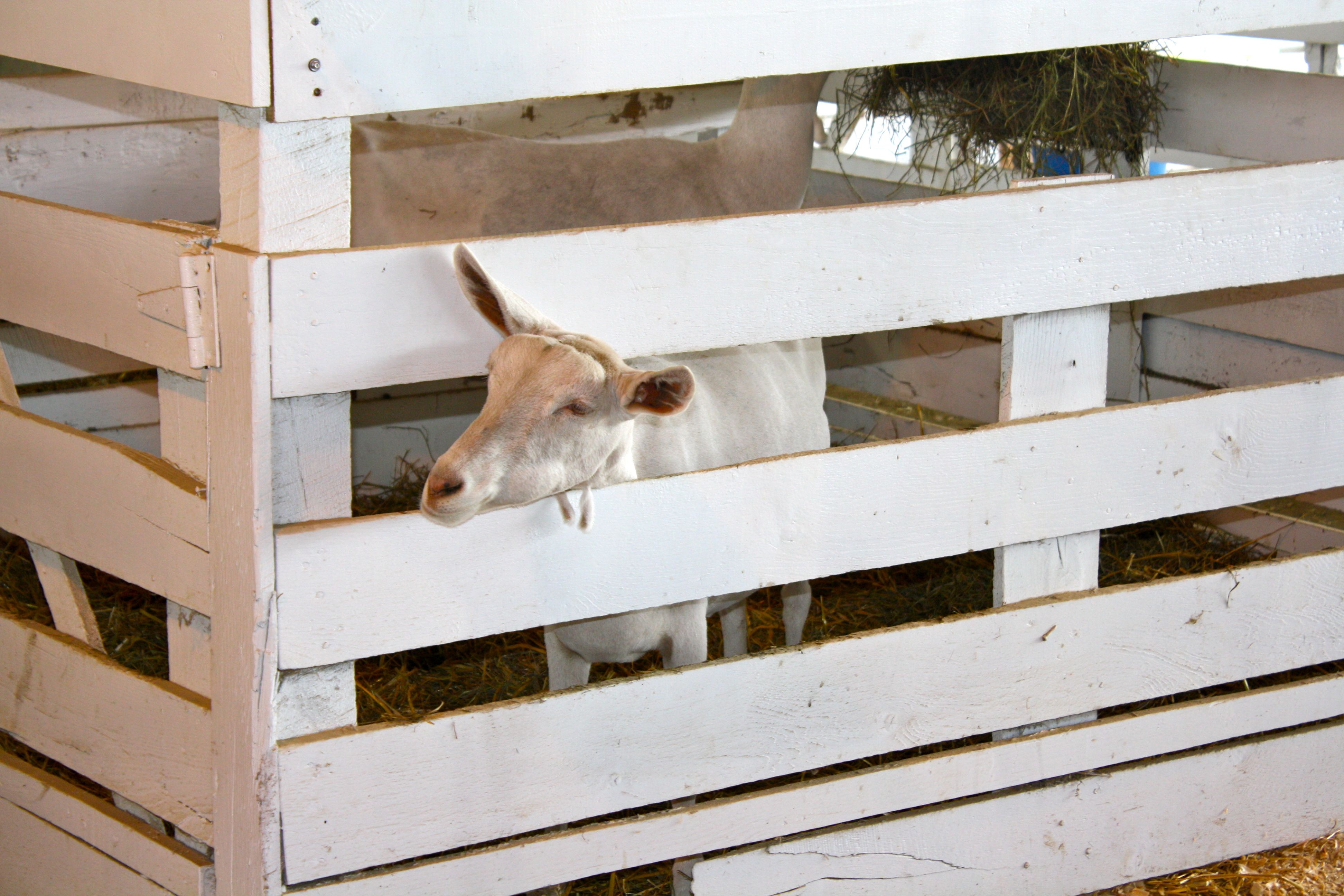Weekly Public Safety Reports
Sept.10-16
Sept. 11 9:03 a.m. – A Welch Hall resident was transported to Grady ER by Delaware Fire Department EMS.
Sept. 11 1:41 p.m. – A Bashford Hall resident was cited for possession of marijuana and drug paraphernalia.
Sept. 11 11:47 p.m. – A Smith Hall resident was transported to Grady ER by Delaware Fire Department EMS.
Sept. 13 2:05 a.m. – Public Safety dispatched to 10 Williams Drive after a resident reported being bitten while removing a bat from the house. The student refused medical treatment.
Sept. 13 2:45 a.m. – Public Safety responded to Thomson Hall on a report of criminal mischief after the RA found several tables and chairs overturned. Investigation is ongoing.
Sept. 13 7:50 a.m. – Public Safety dispatched to 10 Williams Drive after the housekeeping staff found a paint can and paint on the floor, walls and mirror.
Sept. 13 8:30 a.m. – a report was filed by an OWU employee on damage to their vehicle while parked in the Edwards lot. Investigation is ongoing.
Sept. 14 10:55 p.m. – Public Safety dispatched to 9 Williams Drive on a report of two disorderly OWU students. The individuals had left the scene at the time of the officer’s arrival.
Stuyvesant Hall renovations approach completion
By Jacob Beach
Transcript Correspondent
The last time this much construction took place in and around the halls of Stuyvesant was nearly 85 years ago when the building first underwent construction.
A 2009 report published by the North Central Association of Colleges and Schools said that Stuyvesant needed to be renovated due to a lack of repairs to the residence hall. It also mentioned that there have been a lot of complaints from the student body which have been documented in the meeting minutes of the Facilities and Student Affairs Committees of the Board of Trustees. The report said that the number one student issue is the poor condition of the residence halls and is in need for immediate action.
With construction of the hall nearly complete and occupants moved-in the reception of the renovation is mixed.
“First impressions were good,” said junior Olivia Gillison, a resident of Stuyvesant. “It looked like they had done a lot and put the effort into making it a nicer building.”
In a statement released earlier this year by the Residential Life Office, much of the new features were designed with students and community in mind. These include the new entrance on the east side of the building which was designed for easy access by students who walk to the Stuyvesant hall from the academic side of campus.
The interior of the rooms have been changed as well. The biggest change in the rooms can be found in the bathroom layout, where the sinks are now found in the rooms, one in each side of the suite. According to a report from the Residential Life Office, the closets were redesigned so that students can customize and personalize their space with a hanging curtain.
Sophomore Thomas Dehaas said the rooms are very nice. They have nice walk-in showers, comfortable beds and the desks and dressers are new and very accommodating.
“I think some of the features they did well,” Gillison said. “But the inside is really where they skipped out on the best improvements. By removing the closets there is now less storage in this dorm than there is any other dorms on campus. I know being female I tend to have more things than most, but the lack of storage has cost me more money to try and store what I already had here at school.”
The Ground floor has a new main lounge, a community kitchen, vending rooms, meeting rooms, the Stuyvesant smoker, new public restrooms and an interior entrance to the student health center. At this point and time students are not allowed to access the ground floors, except to use the laundry room and the vending room.
Stuyvesant also includes a new air conditioning unit which supplies central air to the entire building.
A new public elevator was also installed to accommodate more students and make it easier to move large, bulky items.
WSCA seeks to increase funds with parking meters
By Spenser Hickey
Transcript Correspondent
The parking meter initiative came one step closer to success during the Sept. 10 Wesleyan Counsel of Student Affairs meeting.
Public Safety Director Robert Wood said once WCSA had the funds, the meters would be ordered.
Sophomore Lauren Holler, co-chair of WCSA’s Residential Affairs committee, said they submitted a budget request for the funds during their full-body meeting on Sept. 11.
Wood said he hoped the meters would be installed within the next few months.
“We tried to get it done last year,” Wood said. “There were a lot of questions and concerns we needed to work through.”
Senior Anthony McGuire, president of WCSA, said the parking meter initiative is an uncompleted project from last year.
The parking meters were originally planned solely for Hamilton-William’s parking lot.
Since last winter, putting meters in dormitory parking lots has become part of the initiative’s goals.
Holler said Smith, Welch, Stuyvesant and Hayes resident halls are tentatively being considered as the lots that would receive meters.
Wood said these lots were the most congested.
Holler said her committee had received complaints from students last year who received tickets while only briefly parking in a lot without having the required permit.
“The idea is to give students a very easy, close place to park for a short time to drop something off or pick something up quickly,” said Wood.
The Department of Public Safety could have bought the meters itself, but Wood wanted the money deposited in the meters to go back to the student body.
He said he discussed this with Craig Ullom, vice president of Student Affairs, and together they came up with the idea of WCSA purchasing the meters instead.
“If WCSA would buy the meters they would get the money back,” Wood said.
He said this additional income could become an ongoing, though small, source of funding for WCSA.
Holler said a likely meter charge would be a quarter for 15 minutes, and the quarters would be collected and added to the Student Activity Fund.
According to WCSA minutes, the parking meters may also lead to more student jobs removing quarters from the meters; however this has yet to be decided.
“We figured only paying 25 cents to prevent getting a $20 ticket will help students,” Holler said.
Professors feed students lecture on importance of food sources
By Carly Shields and
Liza Bennet
Transcript Reporters
Four Ohio Wesleyan professors chewed on the importance of food at “bite’s” first lecture.
The lecture, titled “Why is Food Important? Food Across the Disciplines at Ohio Wesleyan University: A Panel Discussion” was on Sept.13 in the Benes rooms.
Professors Mary Howard of anthropology, David Walker of geography, Shari Stone of philosophy and Chris Wolverton of microbiology and botany each gave their views and opinions of food through their academic disciplines.
Professor Christopher Fink, the director of “bite!” was the mediator of the lecture and directed the professor’s discussion of food and how it relates to a greater scheme of importance.
“As far as the lecture/panel discussion goes, I thought it went very well,” Fink said. “My goals for the event were to show how food as a topic could cross disciplines, and how there are so many issues from each that are relevant for those interested in food.”
He said he also wanted to demonstrate how our interest in food, even as academics, often starts from personal stories that offer insight into our lives.
Each professor gave a short description of how food is important in their own lives and why they became interested in food as an issue and as an enjoyable hobby.
Professor Howard grew up on her grandparent’s farm where she spent almost every weekend running around the property creating havoc and trying to help.
“When I was four years old I was found trying to milk a bull,” Howard said.
Professor Wolverton enjoyed food through cooking and gardening.
Professor Walker grew up in San Francisco with two parents who were food and wine experts.
Professor Stone-Mediatore grew up in the suburbs of Chicago eating meat, white bread and pop tarts. After she moved out of home she became a vegetarian. She learned how to cook and became aware of the amount of meat we eat as a country.
“I don’t find any hard and fast rules about how to eat, but eating more locally from small farms, and avoiding meat from industrial-agriculture, is healthier for us and our environment,”Stone-Mediatore said.
Stone-Mediatore also said there’s only so much we can do as individuals. “We need public policies that support small farmers and make local, sustainably-produced foods more accessible,”she said.
The professors discussed how their disciplines are intertwined with food and how their interaction with food changed through their work.
Howard demonstrated how food related to cultural anthropology by showing a short slideshow of her studies in Tanzania on malnutrition, poverty, famine and the food crises. The hardest part for Howard was to live in poverty in developing countries and then move back to Ohio to teach at OWU.
“I had a lot of exposure to on-the farm food production and had led a good life, which placed me in the privileged position of being a picky eater. When I witnessed a food crisis and became aware of the prevalence of hunger among so many fellow humans, I abandoned being demanding when it comes to food,” Howard said.
Walker described food as the “mobilizing of politics.” Cultural geography looks at cultures and cites around the world and food fits into that scheme as well. Walker said America even has its own different food practices, but they are overlooked.
Walker said we are what we eat and he also sees food as part of a foreign trade and global issue.
“Through traveling it has shown me where our food comes from,” Walker said. “We have coffee growers in Guatemala, Ethiopia and more. Its all blood stained coffee we bring into the U.S. We can and should change those food practices in the U.S.,” Walker said.
Wolverton is a plant and molecular biologist who is studying how plants like rice deal with draught. He also examines how plants take everything they need from soil and then control the use of the nutrients. Wolverton is especially focising on the flooding tolerance of rice. “If we can understand how that works then we can help cure malnutrition and other diseases with food,” Wolverton said. “It’s worth while to me.”
Wolverton also said molecular biologists are looking into genetic modification to help cure diseases and help cure malnutrition by helping women and children grow crops such as cassave, a starchy tuberous root.
Stone-Mediatore said food blurs the boundaries between nature and culture. “Our daily meals remind us of our dependence on the land as well as our immersion in the cultural traditions that shape how we eat,” Stone-Mediatore said.
According to Fink, the lecture and discussion with four diverse areas of study on the importance and effects of food was very successful.
“I thought that getting four professors who study food-related issues from a number of angles might show how solving these larger issues actually requires us to understand the intricacies of the various disciplines, and use expertise from each to inform the best solutions,” he said.
He also said he asked professors to take part because they represent a nice range of disciplines (though certainly not an exhaustive range), and they were also passionate about their areas of study.
“I think that came through very well during the panel,” he said.
Students were also engaged in the lecture.
“I really enjoyed hearing about the same topic from several different disciplines,” said junior Genevieve Watts. “It is amazing how people from the science world can find similar aspects to the people from the sociology world and how intertwined everything really is.”
The Sagan National Colloquium will continue to focus on the relationship between people and food throughout the remaining 12 lectures.
The next lecture will take place on Monday Sept. 24 and is titled, “Food Justice: At the Intersection of Food, Politics, Poverty, Public Health and the Environment”.” The lecture will feature author Bryant Terry.
Delaware County Fair
Organizers of the fair say the fair has a long tradition of providing a place for people to exchange ideas, demonstrate skills and exhibit products, but is also a great source for recreation and entertainment as well. People of all ages are welcome and the fair tends to be an enjoyable family event for the residents of Delaware county.
Student indebtedness: what can be done?
By Thomas Wolber
Associate Professor of MFL
In 2011 and 2012, the amount of student loans crossed the $100 billion mark for the first time.
The total loans outstanding now exceed $1 trillion, which is far higher than either credit card or car loan debt.
Students finish college with an average debt of more than $25,000; in Ohio, it is $27,713. Some students owe more than $100,000.
Many start their adult life deep in debt and have no choice but to delay buying a car or a house, or getting married and having children.
Some are so saddled with debt that they can never dig their way out: Americans 60 or older still owe about $36 billion in student loans. In addition, many students default on their loans (Ohio’s delinquency rate is 8.5 percent) and may end up in bankruptcy.
Given the steep price tag of college, it also means that fewer students may opt to to go to college and graduate schools in the future.
The implications for the national economy and America’s international competitiveness are clear – college debt has ballooned to such unprecedented proportions that the country is now in the midst of a real crisis.
The problem of student debt is not “a side show,” as a commentator dismissively wrote earlier this week. It could well be the next economic bomb that sends the country in a tailspin.
There is no shame in having student debts. It is not a personal problem and burden, but a collective experience.
Also, student indebtedness is not an inevitable disaster and inexorable fate. There are solutions to the problem.
Colleges, private banks, and the federal government can and should do a much better job of disclosure and counseling before students take out loans.
All lenders, public and private, should cap their interest rates at no higher than 3.4 percent instead of charging exorbitant rates of 15 percent or higher.
And colleges and universities should do everything in their power to keep tuition as low and affordable as possible; in recent years, tuition increases have far exceeded inflation.
When students start paying back their student loans after graduation, their repayment should be tied to their income.
Income-based repayment (IBR) means that low earners and the unemployed pay less per month than high earners. This rule should become the norm for the entire nation.
Perhaps we should also have another look at bankruptcies. Currently, there are no statute of limitations on student loans, and declaring bankruptcy will not allow you to start with a clean slate.
Another idea is loan forgiveness.
If someone commits to working as an educator, physician, or soldier for a number of years (ten, let’s say), why not give the individual credit for his/her community service and waive the balance of the loan?
One such program is the Stafford Loan Forgiveness Program for Teachers, created with the intent to encourage individuals to enter and remain in the teaching profession.
Why not expand the program to include all public-service occupations, for example social workers, doctors, lawyers, and scientists?
If we add together grants, stipends, low-interest loans, principal reduction, loan forgiveness, income-based repayments, deferments of payments, and more, then perhaps higher education can remain affordable to all who qualify.
This fall, politicians need the help of students to be elected or reelected. Student indebtedness could be and should be a central bipartisan campaign issue. Students should make their voices heard and demand debt relief from those running for office.
The key demand is to keep colleges and universities within reach of not only the 1 percent, but of the 99 percent. The Pentagon has a defense budget of $690 billion, not counting many secret programs. Surely, higher education is as important to the national security and economy of our country as the military, and perhaps is even more important than the wars of choice in Afghanistan or Iraq, where the United States has so far spent over $1 trillion.
Because it is the foundation of the nation’s future, our education system deserves to be fully funded from top to bottom.
Editor’s Note: This article was written in Spring 2012 by Thomas Wolber, German professor and associate director of the Modern Foreign Languages Department.
Dean encourages students to voice campus concerns
By Noah Manskar
Transcript Correspondent

Goldsberry said she started hosting students for lunch regularly during her first year at Ohio Wesleyan in the fall of 2009 to learn more about student experiences.
Sophomore Emma Goetz took the opportunity to make her concerns about handicap accessibility to campus buildings campus known.
Goetz said she felt Goldsberry was receptive to her opinions.
“I thought she was really interested and she was very focused on what we were saying,” she said.
“I thought she was really nice. I was very impressed with her.”
Goetz said she did not go into the meeting with specific issues to address with Goldsberry.
However, she did make her concerns about handicap accessibility to campus buildings known during the meal.
Goetz said she is aware the problem solution’s is complex, but has faith the administration will handle it.
“It is expensive, but I feel like it’s something that should be done,” she said. “But I understand that it’ll happen when it happens.”
Goldsberry said students have brought a myriad of issues to her attention since Dine with the Dean’s inception.
“There’s a whole variety of things that come up,” she said. “There’s no script, there’s no agenda, so you don’t always know what they’re going to bring up.”
According to Goldsberry, she has often referred students to other university or city authorities to help solve their problems.
In the past, she took student concerns about lighting on campus streets to the Delaware Police Department and other city leaders.
She also referred a student with questions about the sulfur spring at Phillips Hall to the person who controls its activity.
Goldsberry said she cannot be everywhere and control everything, but she does her best to understand what is going on so she can have influence over it.
Senior Kamila Goldin went to Dine with the Dean last year as an ally for her friends Brian Trubowitz (’12) and Lauren Leister (’12).
She said the experience was “intimidating,” but that she understands the difficulties Goldsberry faces when helping students make change.
“She’s working with a lot of constraints and demands that we can’t see, so even though she’s open to hearing our suggestions, she’s very aware of all the limitations and restrictions which can come off as a little bit daunting and hopeless sometimes,” she said.
Goetz said she thinks a common student conception of university administrators like Goldsberry is that they’re not open to hearing student ideas.
She said if students believe that, it is because they don’t know Goldsberry.
Goldin said she thinks change can sometimes be difficult because of the administration’s institutional nature.
“I think that unfortunately the institutions tend to be pretty conservative, not that they don’t want to try new things, but they just tend to conserve orders that work,” she said.
“So if every idea that every student had was honored, the school would just be changing every year or every four years.
“I think that there’s a lot of inertia inherently built into the system, like the Senate, or like the House of Representatives. I think that even though the administration is very open and friendly it is still hard to make change, by no fault of any of the administrators. I feel like it’s just part of the system.”
Goldin also said the even distribution of power among administrative departments requires students to be especially diligent when making their voices heard.
“Power is really distributed, and so if you want to make a change you have to tackle a lot of different aspects of the administration; it’s not a single person,” she said.
“So it takes a lot of energy and a lot of focus and a lot of desire to kind of follow through and check up on people, make sure that they are still hearing what you want to say and that they’re following through and talking to who they’re supposed to follow through (with). Basically you have to have the initiative and the energy to keep your cause on the administration’s agenda and all the administrators’ agendas, and I think that there’s hardly a student who has that kind of time.”
Goldsberry said she tries to be “approachable” for students, so she keeps Dine with the Dean meetings small to allow everyone a chance to speak.
“Sometimes it makes them feel like they’re in a special place because there’s a lot of schools where it would be difficult to have that opportunity,” she said.
“We’re the size of community where we should be able to do that and I enjoy doing it and I hope they enjoy the experience.”
Goldsberry said she enjoys hearing positive things from students about their university experience along with their concerns.
“The good part is I hear about good things that are going on for them, being with students in those happy moments,” she said.
“Sometimes I’m with them in not their happiest moments, so I enjoy having those times.”
Goetz said more students should take advantage of Dine with the Dean.
“You hear students complaining all the time on campus but they never make concerns known in a productive manner,” Goldin said meetings like Dine with the Dean help form a healthier relationship between students and the university.
“The more human a face that the administration has and the more human a face the student body has to the administration, I think, the more change will happen,” she said.
“Because more people will buy into each other’s ideas and buy into the idea that things can change.”
Religious opportunities abound on campus
By Kathleen Dalton
Transcript Correspondent
Ohio Wesleyan University Chaplain, Jon Powers, said the community of religious and spiritual organizations on campus are like colored stones within a kaleidoscope. With just a simple tap the entire composition of the kaleidoscope changes.
“All stones are valuable, but not all know it,” he said.
He said he sees patterns and layers in the religious and spiritual experiences of students. This is the “joy of his job.”
Powers said the “joys” he finds in his role on campus with an expression of utmost passion.
He said he realizes students’ needs as they explore the opportunities available to them at OWU are different. He said the chaplain’s staff needs to “be sensitive to that.”
Religious and spiritual organizations on campus cater to these different needs, providing both structured religious celebrations and venues through which students may understand concepts of spirituality and the ways in which their own religion and spirituality may collide with activism, culture or even the outdoors.
Powers said he places the religious organizations on campus into a series of layers, layers that some students peel back as they progress through their campus journey.
The First Layer
Such organizations as the Newman Catholic Community and the Tauheed Muslim Community offer structure to students attending school after experiencing a consistent religious upbringing or religious-based high school.
Junior Maria Jafri, president of Tauheed, was born a Muslim in Saudi Arabia.
“My whole life, my religion has played a big part of who I am,” Jafri said. “Coming here, I knew it would make me more comfortable so that’s why I got involved. I feel like I’m more a part of community discussion.”
Jafri said she attributes her experiences with Tauheed as a venue through which she learned to conduct herself on campus.
Tauheed offers her the opportunity to attend Muslim prayer services every Friday in Peale Chapel at noon.
The group also makes periodic visits to a nearby mosque, along with their more cultural celebrations.
She said she hopes these events educate members of the campus community about different religions other than their own, but she said she commonly sees the same attendees at every Tauheed event.
“There are very few people who come because they’re genuinely interested…but the few who do come are the best part,” she said. “I do feel that a lot of people think they can’t join if they’re not Muslim. Tauheed is very open to people of all faiths. That is something I would like to see more of.”
Senior Betsy Dible, president of the Newman Catholic community, was a member of a consistent Catholic community and youth group before attending OWU. These experiences informed her decision to stay involved in her religion on campus. She said she wishes more students would do the same.
“A fairly large percentage of students identify themselves as Catholic (at least on applications and such) but don’t attend our events,” Dible said.
“I personally feel like more and more students are losing their faith when they head away for college; their parents aren’t there making sure they go to church. That’s what saddens me the most. I know my own personal faith life has grown since I’ve been in college because I am making my own decisions when it comes to going to church…and I have become more invested in my choices.”
According to Powers, one third of the campus community is Catholic. This is around 600 students.
If all these students were to attend Newman events, organizing a place to meet would be problematic.
Powers said organizations like Newman are an ideal fit for some students, but other students have different needs to meet.
The Second Layer
These other students may find comfort and solace in such organizations as Jubilee, Spring Break Mission Trips, Freethinkers, Wilderness Treks and Common Texts.
Students involved in these groups may apply their past religious experiences to the pursuit of learning about other religions traditions or spiritual experiences.
“For students who have no religious experience or a negative religious experience growing up and want to sample or explore another faith, these organizations offer another way of looking at things,” Powers said.
He said he places these organizations within another layer of exploration of the religious and spiritual journey students may experience on campus.
Sophomore Avery Winston, co-president of Freethinkers, said he hopes students may find “a deviation from the norm” within Freethinkers.
The group meets every Friday at 12 p.m. to discuss a variety of issues in an open format. Those who attend Freethinkers come from a variety of backgrounds and experiences, according to Winston.
He said those who attend group discussions are “smart, open-minded students who aren’t able to have certain discussions.”
“We provide that,” he said.
Senior Hayley Figelstahler became involved in the Outdoor Ministry Team because she wanted a venue through which she could combine her love for faith and the outdoors.
She said she feels as though students come to college and “just let everything loose…and everything soft of slacks.”
She said she feels, however, that some students actually find religion in college, a strange dichotomy.
Outdoor Ministry Team plans weekly discussion and adventure events which alternate depending upon the week. The group also hosts larger outdoor events, which tend to attract more students.
“I feel religion is a touchy subject and it’s not something a lot of students just flaunt…asking people to come out for a religious event is completely different than a philanthropy event,” Figelstahler said.
Powers said he sees the combination of religion and spirituality with activism as an impressive aspect of such organizations as the Small Living Units (SLUs) on campus. He said he commends students who apply their religious beliefs to causes they feel strongly about. He said he sees this application as another layer.
The Third Layer
Gretchen Curry ‘12, a former member of the Peace and Justice House, said she grew up with religion as an immensely important aspect of her life.
“I grew up in the church,” she said. “Almost literally. My dad was an Episcopal Priest in Connecticut for the first nine years of my life so I lived in the parish house right next door to our church.
“For the past 11 or so years my dad has been one of three Episcopal Bishops in Connecticut. Though I no longer live next door to the church where I grew up, church itself remains an important part of my life when I go home.”
Curry said she is using this time in her life to sort out her feelings concerning religion. She said she is unsure of what role the church will play in her future.
“I’ve attended countless events throughout my life,” she said. “I was in my youth group, have gone on many trips in and out of the country through the church, and still tag along with my dad to different events throughout Connecticut when I go home.”
But Curry is not directly involved with any religious organizations on campus.
Curry said she feels students, should in no way be pressured to attend religious events or be involved in any religious or spiritual communities on campus. She also feels as though there is not enough honest discussion about religious and spiritual issues on campus.
“I think (religious organizations) have to deal with a lot of crap sometimes,” she said. “That’s unfortunate. However, I find myself turned away from specific religious organizations on campus simply because my moral framework does not always align with those of the group. But will I respect their presence on campus as long as they respect the OWU population at large? Absolutely.”
Abigail Docker ‘12, said she is very involved in religious organizations on campus. She said she is passionate and excited about her involvement, but doesn’t feel as though all students should be.
“I think faith and religion is like any other aspect of the college experience–it plays as small or large a role as you want it to,” she said. “There are things we could do to make it easier for students to worship and lead religious lives, but overall I think there is a good network of students, faculty and staff that make living your faith possible in college.”
Docker said she is satisfied with the work done by religious organizations on campus to promote religious and spiritual events and the opportunities these events hold.
“There is some anti-religious sentiment on this campus, but for the most part discussions tend to be heated but not hostile,” she said. “I think the faith-related organizations do a decent job of working together and providing a place for people to have these conversations. Preserving and improving this environment is going to take effort from students.”
According to Powers, any involvement in religious and spiritual life is positive, and it should be different for any student.
OWU offers the opportunity for students to apply their own religious and spiritual experiences with the “cafeteria options” of organizations and opportunities on campus. The chaplain’s office strives to work with students to meet all of their needs, whatever these may be.
Editor’s Note: This article was written in the spring of 2012. All class standings have been updated to reflect the fall of 2012.
OWU provides four-year haven from real world
As my junior year begins to unfold, I am slowly beginning to realize how close we are to the real world.
OWU is a safe haven; it’s a four-year bubble where we, as students, are afforded the opportunity to explore academic interests, hone our social skills and learn how to effectively juggle a growing list of responsibilities.
We are allowed to escape the realities of a full time job, electricity bills and cooking our own dinners each night.
Coming into this year, I was happy knowing I still had two full years left to enjoy at OWU before I would have to start thinking about any of that. Then it hit me, I already need to start preparing for life after OWU, even while I am still here enjoying it.
I just recently signed up for an LSAT prep course and realized that I will need to take that exam shortly in order to have time to finish other requirements and apply to schools next fall, which I know will be around the corner much sooner than it sounds. I have friends that are spending semesters abroad, taking semesters off for internships and working towards obtaining real jobs.
At this point, it is comforting to know that we will all still meet back at OWU in the near future, but it is just a glimpse of the years to come when we will all be out on our own, making a difference and keeping in touch through Facebook, emails and text messages.
Each year I return to OWU, my love for the university and the people I have met here grows exponentially. I think every now and then it is good to remind ourselves what a great deal we have here at OWU.
Our friends live no more than a five minute walk across campus at most, our professors are willing to advise us on both personal and academic matters and, even though we may complain about the food choices sometimes, meals are always ready and waiting for us to show up at a dining hall on campus.
So, although we are all growing up and will need to start preparing for our futures, we should take the time to appreciate where we are at this very moment.
We should take every opportunity that comes our way, allow fun memories to form and appreciate any hardships we face because these years will forever shape who we are as we go out into the real world.
Lucky for us, we chose the right school because OWU is a great place to be shaped.
Marissa Alfano
Editor-in-Chief
